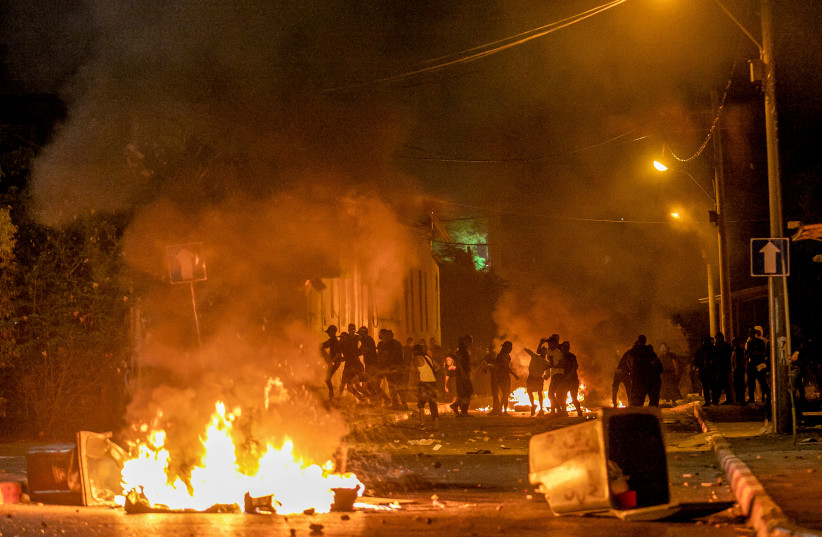That the Israel Police is in need of serious reforms is not new. For years, we have reported on the problems, flaws and failures that have accompanied the police for far too long. From sexual improprieties to poorly-run investigations, the police have long been in need of more manpower, higher-quality personnel and upgraded infrastructure and technology to fight crime and keep Israel’s streets safe.
The State Comptroller report on the events that took place in Israel’s mixed Jewish-Arab cities last May, during the IDF’s Operation Guardian of the Walls in the Gaza Strip, is just the latest proof of the need for all of that to happen – sooner rather than later.
In the report, the comptroller found “noticeable deficiencies” in the operations of law enforcement in the mixed cities before and during the widespread violence that broke out during the operation.
The report examined the operations of police in Lod, Jaffa and Acre during the riots. About 520 outbreaks of violence were reported throughout Israel during the operation, killing three, injuring hundreds and leading to about 3,200 arrests, including about 240 Jews. About NIS 48 million in damage was caused to civilian property and about NIS 10 million to police property.
One clear deficit was in the intelligence available to the police and Shin Bet (Israel Security Agency) ahead of and during the violence in the mixed cities.

The comptroller found, for example, that in the days leading up to the Guardian of the Walls riots, Israel Police and the Shin Bet placed an emphasis on reinforcing the Jerusalem district while ignoring other areas where violence ended up breaking out.
When the violence did break out during the operation, about 57% of the Border Police forces in Lod were not available for the Central District. In total, only about 25 police officers were present in Lod and only 58 in Acre when the violence broke out in May 2021. And these officers were neither equipped nor trained to deal with riots.
The report also found that stations in Lod and Jaffa were understaffed, with half of the unmanned units at these stations being patrol units. Police in mixed cities rely heavily on reinforcements, extensive activity by mission headquarters, police officers who are temporarily stationed at these stations, volunteers and Israelis doing their national service in the police. The officers were also lacking the equipment needed in order to respond to the riots.
Reserve forces were only fully deployed a week after the initial directive for their deployment was issued, with the comptroller lamenting that this “practically negated the possibility of using the reserve forces to deal with the disturbances in the time period when they were most needed, in the first days of the events, when the scope and intensity of the incidents were at their peak.”
The problem is that the incidence of future riots in these cities is still very much a possibility. There are concerns in the IDF that certain parts of Israel will be inaccessible for military convoys that might need to cross the country, either to the North or the South depending on where a war will be fought.
While the police will likely be better prepared in terms of deployment next time, the IDF has already begun training reserves battalions to deploy along main roads to ensure they remain open.
The government has also approved the establishment of a national guard that will consist of standing Border Police units, reservists and volunteers specially trained to handle mass civilian disturbances.
The police force, though, is only one part of the solution. The lack of rule of law in Arab-majority areas, as well as mixed cities, has long been a problem plaguing first and foremost the Arab sector but also all of Israel, which ultimately pays the price.
When laws are regularly enforced and police presence is always felt, the chance for sporadic violence is also likely to decrease. The last government did an impressive job cracking down on crime in the Arab sector in an effort to stop gun violence and the spate of tragic murders.
But more is needed. Hopefully, this comptroller report will not end up in a bureaucratic wastebasket. Israelis need cities that are safe and secure.
